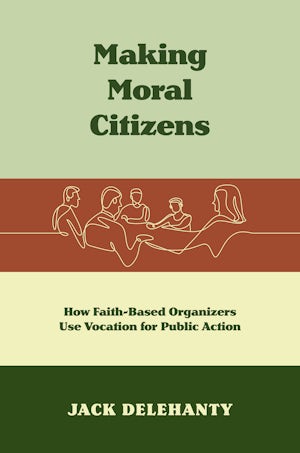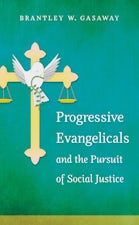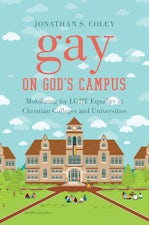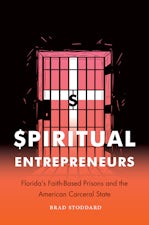Making Moral Citizens
How Faith-Based Organizers Use Vocation for Public Action
By Jack Delehanty
222 pp., 6.125 x 9.25, appends., notes, index
-
Paperback ISBN: 978-1-4696-7316-5
Published: April 2023 -
E-book PDF ISBN: 979-8-8908-6271-6
Published: March 2023 -
Hardcover ISBN: 978-1-4696-7315-8
Published: April 2023 -
E-book EPUB ISBN: 978-1-4696-7317-2
Published: March 2023
Where Religion Lives
Buy this Book
- Paperback $24.95
- Hardcover $99.00
- E-Book $19.99
For Professors:
Free E-Exam Copies
Relational practices like one-on-one conversation and public storytelling take on new significance in faith-based community organizations. Delehanty reveals how progressive organizers use such relational practices to help people see common ground across lines of race, class, and religious sect. From this common ground, organizers work to develop and deploy shared ideas of moral citizenship that emphasize common dignity, equity, and prosperity and nurture the sense that public action is the only way one can live out religious faith.
About the Author
Jack Delehanty is assistant professor of sociology at Clark University.
For more information about Jack Delehanty, visit
the
Author
Page.
Reviews
“Jack Delehanty has written the best book on faith- and broad-based community organizing in a generation, and one of the best books in cultural sociology and the sociology of religion.”—Sociology of Religion
"An immersive, thoughtful study on the context and practices of progressive religious organizing for social justice. Grounded in outstanding qualitative research, Delehanty’s book delivers fresh insight into the relationship between religion and politics." —Gerardo Martí, author of American Blindspot: Race, Class, Religion, and the Trump Presidency
"Delehanty emerges here as an important new voice on the religious and cultural underpinnings of social movements—and perhaps the scholar best positioned to bridge conversations between faith-based organizers and their secular counterparts."—Richard L. Wood, University of New Mexico




